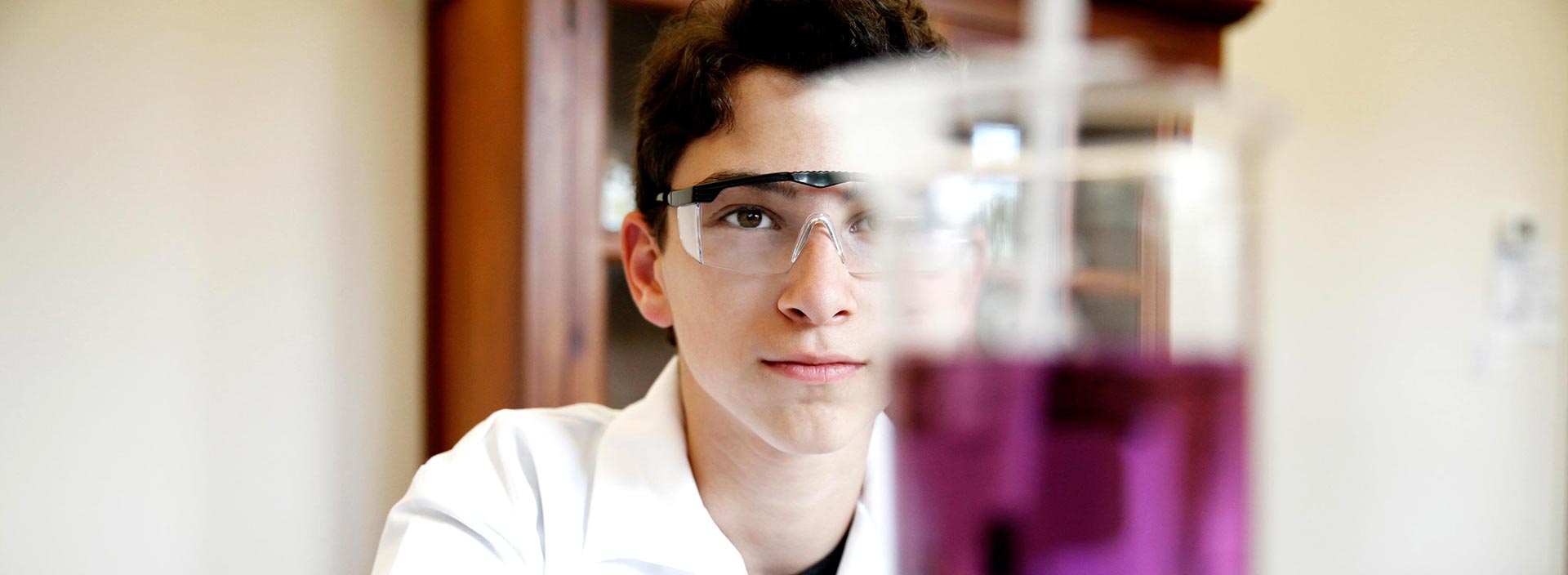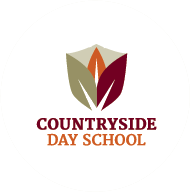
Hear from our Alumni about the CDS difference
Our impact on students extends beyond their school years. Learn more about student outcomes and hear what our alumni have to say about the lasting value of a Countryside education.
Beckett currently attends Glenbrook South High School in his junior year. He plays piano and trumpet, has participated in marching band, jazz band and concert bands. Beckett has taken honors classes for all subjects every year and is currently in 4 AP classes and 1 honors class. His plan for senior year will be to take all AP classes. Beckett is a Scout and earned Eagle Scout rank last year. Beckett has also held a summer job working at Farmers Market in Deerfield. Beckett also participated in a service project with his church, the Appalachian Service Project in Kentucky, where he worked on repairing houses in underserved neighborhoods of the town.
What is important to CDS graduates?If I could change anything in the world I think I would have to change the antagonism that just humans in general feel, and again it’s very idealistic, but just fighting over petty things is the one thing that I feel like if humanity could overcome we would move on and surpass all of our problems. I feel that that’s our key to everything…I feel like its just so important for all people to learn from such a young age how not only to learn information in a classroom setting but also how to treat others, how to learn how to learn, and how to be self sufficient.
I also like to make sure people don’t feel ostracized or left out and when something like that happens around me I feel like I take a very personal attachment to that because I know what that feels like, and I feel like it’s important for me to help others.
What habits, skills, and character qualities do graduates trace directly back to their time at CDS?Countryside increased my personal initiative on so many levels. I feel like without CDS I wouldn’t just feel motivated to push through some of the more difficult topics that I’m learning in school. When the going gets tough, the tough get going. I think that all of the CDS graduates are tough, and they are the people who know how to keep going when things aren’t going your way.
I feel that I am more eager to learn as opposed to getting the learning over with. I feel more pride in having learned something valuable than having received a good grade on a test. I feel like that’s something that maybe fewer people experience.
I love science, more on the theoretical side of things. Physics, quantum, also surprisingly I found that cartography is a passion of mine. Just maps. I just love making maps, and I love studying maps, and I feel that that definitely arose maybe as early as primary school with the pin maps at Countryside.
During my first early elementary years I was very introverted and very unwilling to talk and interact with others and because of all the work we were doing there and all the conversations that had to be had to thrive in that setting, it tremendously increased my ability to interact with others and to collaborate and my ability to lead in school and in Boy Scouts and in personal life settings. That definitely came directly out of the work that we did at CDS.
I’ve been a pretty good test taker, for standardized tests, for the ACT. I’ve known how to take tests, and it’s kind of interesting because that wasn’t at all a focus of CDS. But I think that the way that works, the reason why I am more skilled at standardized tests is because of the fact that they aren’t the kind of tests that you could study for. They’re more like general knowledge, and I feel like being at CDS has helped me not only increase my wealth of general knowledge but has allowed me to absorb it at a higher rate and that factors into these almost random standardized tests.
I am so thankful I went to CDS because I realize how the world functions, that probably i would not see had I not gone to CDS. I feel like I understand society and maybe how to fix some of the not so great aspects of it.
How does the CDS Mission (Respect, Responsibility and Resourcefulness) still guide its graduates?I would say the most important is resourcefulness, and it’s ironic because growing up my parents felt that the area that I lacked in was resourcefulness. I was kind of scared to try and figure things out on my own and only really wanted to follow exact directions. And if I couldn’t figure those out, then I’d sit down and not move forward. But I feel that over time I’ve developed that into my strongest desire in life: to just figure out solutions to problems when the solutions may not be given to you or anyone. I just feel like resourcefulness is so important to success in life in so many settings that if you can figure out, if you can problem solve easily and quickly, then you’re going to be not only the one who succeeds in things but also the one that others will flock to in hopes of you imparting some knowledge to them.
It feels like resourcefulness is just everywhere. We are doing a research project in my AP US history class and we were told to find your own source of information for your own thesis for some particular aspect of any part of the US history. I chose to research a particular topic and the important part of the project was that you needed to find some way that you could find an arguable thesis. I figured that using my own intuition and by diving into some of the more unexplored aspects of US history that that ability to move beyond what we read in the textbook and what was readily available on the internet probably came from my resourcefulness and the CDS message on that.
What defines the CDS experience?I felt like that the mixed age group was one of the most important aspects of the Montessori program. It almost created an environment where you could be a leader and also be a learner at the same time. Where you could be teaching and helping other younger students or even the students your age while at the same time being taught how to be a better leader in addition to all the other academic subjects that we learned.
Being allowed to follow my own interests definitely created less of the image of dreading a certain subject because you could dive as far into subjects as you wanted, until you found your particular interest, until you found that one aspect of maybe a subject like history that you weren’t particularly fond of, that spoke out to you and that’s kind of where I think I developed many of my particular interests that I’ve continued to try to pursue.
At Countryside the adults were were more than just teachers, in the sense that they didn’t just teach us to memorize and to spit back that memorized material. They were mentors and they were counselors, and they were people that we could rely on to not only help us succeed in the short term but also in the long term with things like interpersonal relationships which were very important to me because I struggled severely with shyness. And I feel like they were compassionate in a sense that very few other teachers seem to me to be.
NEXT ALUMNI INTERVIEW







